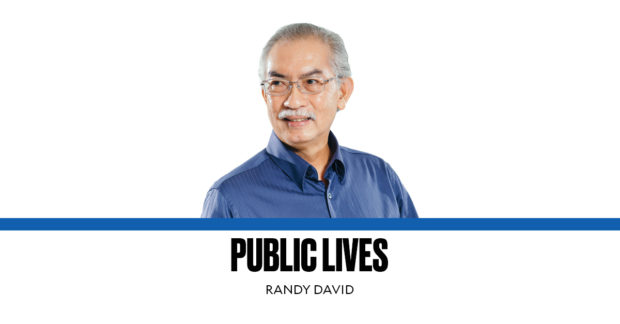CIFs or confidential and intelligence funds have been making headlines recently, shedding light on the creative ways that public officials spend taxpayers’ money. However, there is a lesser-known 2012 Commission on Audit (COA) circular that was specifically designed to address and prevent what it refers to as “irregular, unnecessary, excessive, extravagant, and unconscionable” (IUEEU) expenditures of public funds. The circular, with its strong language reflecting frustration with corruption in government, should ideally be enough to restore order. However, true reform goes beyond defining the problem and creating appropriate legislation. The real challenge lies in enforcing the law and supporting independent bodies like the COA in their efforts to ensure integrity and transparency in government.
While our government institutions may appear modern on the surface, they remain deeply rooted in traditional practices. Our written laws are in line with the standards of developed countries, but the actual conduct of our governmental affairs is trapped within a patronage-driven political system. The problem does not lie with our laws, but with the inherent inequality in our society that has kept us in a fundamentally feudal state. Those in power within our government have the authority to use public funds as they please, as long as they adhere to the unspoken rules of camaraderie within their respective circles.
It is no wonder that in a legislature filled with over 300 elected representatives, only a few conscientious members feel compelled to question how public funds are being spent. The primary concern of our legislators when it comes to the national budget is securing a larger share for their constituents. This enables them to fulfill their obligations while in office – by distributing public resources as personal favors and rewarding loyalty during election cycles. Consequently, the government becomes nothing more than a distribution center for various benefits and assistance, granted selectively by politicians rather than as rights to all citizens. This pattern is evident across all levels of government, from the smallest barangay unit to the highest office in Malacañang.
In more robust institutions, patronage politics is held in check. However, in our society, government agencies avoid antagonizing politicians who command significant electoral support. They learn to adapt to the demands of political power. In the past, legislators found ways to allocate public funds and “park” them in various government agencies as reserves for projects to be decided later by sponsoring politicians. These funds had different names such as “congressional insertions” or “countrywide development funds,” but they were universally known as “pork barrel” allocations – funds set aside for unspecified projects. After the pork barrel scandals involving Janet Lim Napoles, who operated a network of fake non-government organizations that facilitated the misappropriation of budgetary funds allocated for numerous legislators, the Supreme Court ruled all pork barrel funds as illegal. This decision stripped congressmen and senators of their power to have a say in how appropriated funds are released and used once the General Appropriations Act has been passed. While some politicians were briefly imprisoned, it would be naive for the Supreme Court to believe this would completely eradicate the practice. The pork barrel system is the lifeblood of political patronage and takes many forms. A thorough examination of the annual national budget will reveal allocations that allow for discretionary spending.
Confidential and intelligence funds (CIFs) are the equivalent of pork barrel funds allocated to national government agencies. These funds do not require full disclosure regarding their actual use due to their confidential nature. In theory, CIF requests should be accompanied by a “physical and financial plan” outlining the activities and programs to be undertaken, along with estimated allotments for each. Because of their confidential status, these plans do not need to be detailed and are difficult to audit. However, certain expenditures are so obvious that an auditor would need to intentionally ignore them to overlook them. This was the case with the Office of the Vice President’s expenses in the last six months of 2022, after Sara Duterte assumed the position. Duterte requested P250 million in confidential funds, a budgetary item that did not exist during Leni Robredo’s term as VP, and received P125 million just before the end of the year. She managed to exhaust all those funds in just 11 days. Considering that government offices typically switch to holiday mode from December 15 onwards, it wouldn’t be unreasonable to assume that these funds were discreetly distributed as Christmas gifts to loyal followers.
Denial of responsibility! Vigour Times is an automatic aggregator of Global media. In each content, the hyperlink to the primary source is specified. All trademarks belong to their rightful owners, and all materials to their authors. For any complaint, please reach us at – [email protected]. We will take necessary action within 24 hours.


